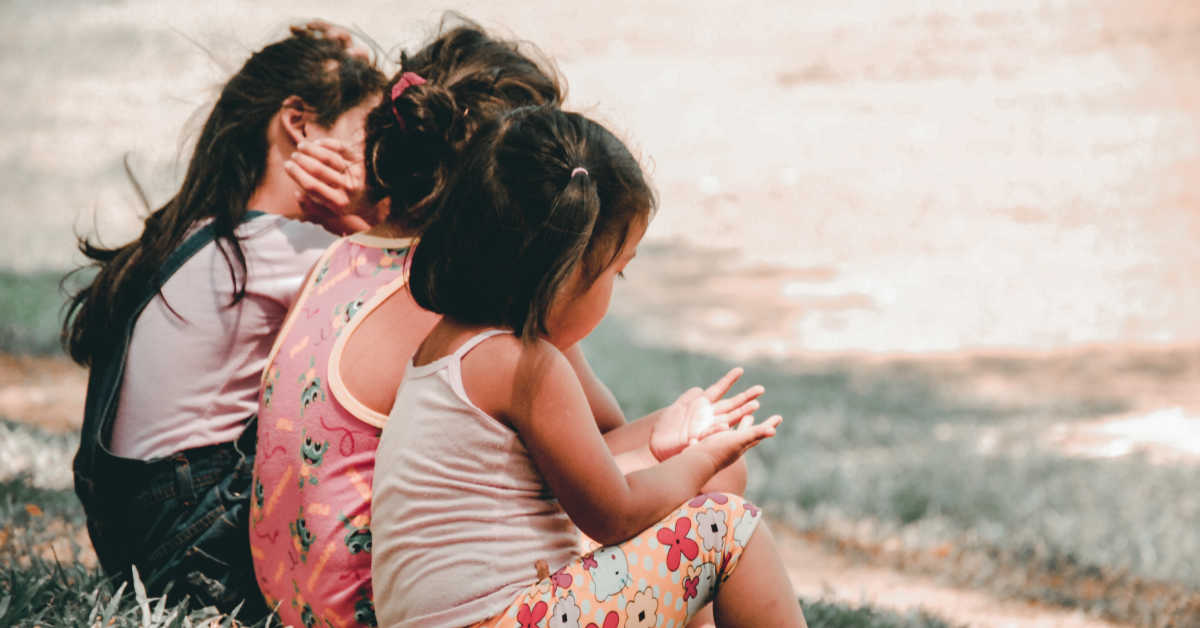Everyone needs to be known by someone. Just one significant other.
For our kids, knowing that they are known and loved by one caring adult is the central predictor of resilience. Having great people around them is one of the next critical resources for building wellbeing. When you feel like you have people around you who are your people, it feels wonderful. But more than that, it makes you more resilient and more capable of handling the ups and downs of life.
The Power of the Tribe
Our kids, just like us, crave that feeling of being part of something bigger than themselves. Having a group they identify with and that makes them feel that they belong, is powerful. Human beings in a group nourish each other emotionally. And without that support, we’re left feeling distanced, depressed and physically and emotionally unwell.
But to find our tribe, we need to know something about ourselves. It’s not easy to just walk out the door and find where you fit in, especially for kids. It involves knowing who you are. It also requires knowing who you want to be.
Finding their Tribe
For our kids, discovering who they are will help them find those people that will support and nourish them. And these strong supportive relationships are the central tenant of resilience. Here are a few ways we can help them start to build their identity and therefore find their tribe?
Encourage Them to Join a Team or Group
This is the obvious one, but it needs to be said. Team sports, boy scouts or girl guides, church youth groups, chess or coding club – whatever your child is into, there’s a group for it. Joining a team or group is fantastic place to start building your tribe. After all, your child is already doing something they love! And when the focus is on building each other up, and supporting each other, lifelong bonds of friendship can be formed.
If they don’t know what they’re into, give them space to try things (as much as your resources allow). Remember, too, that the quality of the relationships they develop will keep them involved or draw them into something just as much as their enjoyment of the activity.
Dispel the cult of celebrity
This idea is less obvious but critically important. Too often our kids get caught up wanting to be in the wrong crowd. By wrong, I don’t mean bad kids. I mean a group that is not compatible with the natural leanings and strengths of our child. Usually it’s a child who desperately wants to be popular hanging out with the ‘cool’ kids even though they enjoyed limited shared interests, strengths, or values. Being part of the ‘school celebrity’ group can be hard work when it’s not a natural fit. It’s uber-competitive, with big personalities and a cut-throat ethic for those who don’t quite belong.
My friend and author of “Find Your Tribe”, Rebecca Sparrow, said, “don’t think for a second that hanging around with the cool group will make you seem more attractive. There’s nothing attractive about someone who behaves like a sheep and follows a leader. You’re way better off hanging around with your tribe.”
Encourage introspection
Kids can get so excited – or so deeply anxiety-prone – about their friends, being popular, and the quality of their relationships that they can easily forget who they really are in their quest to be more like everyone else. It pays to encourage some quiet introspection where your kids ask themselves the following two crucial questions:
Do I like myself when I’m around these people?
Do I feel like I’m being true to who I am when I’m around these people?
When your child answers yes to these questions, they’re probably with their tribe. If they answer no, our compassion and support is important as they consider how to extricate themselves from less healthy relationships and move towards better ones.
Chloe, a 16-year-old girl told me that she had no friends at school. I asked why and she explained that the kids she was hanging out with mocked her for her religious values and “I am sick of all the sex jokes.” She was introspective enough to realise that she didn’t like herself around those people and didn’t feel true to herself when she was with them. She feels lonely but is trying to find ways to form a new tribe where she feels safe and feels as though she can be herself.
There is an overwhelming amount of scientific data that proves that loneliness is a greater risk to your health than smoking or lack of exercise. It’s a basic psychological need – to fit in; to belong.
Sometimes there are no easy answers for how our kids can find their tribe. Our role as parents is to help them know our tribe is safe for now, and to encourage them to branch out, form friendships, and build a tribe – even if it’s only two or three people. That tribe will help them be who they really are, and like themselves for it.
Article supplied with thanks to Happy Families.
About the Author: A sought after public speaker and author, and former radio broadcaster, Justin has a psychology degree from the University of Queensland and a PhD in psychology from the University of Wollongong.

